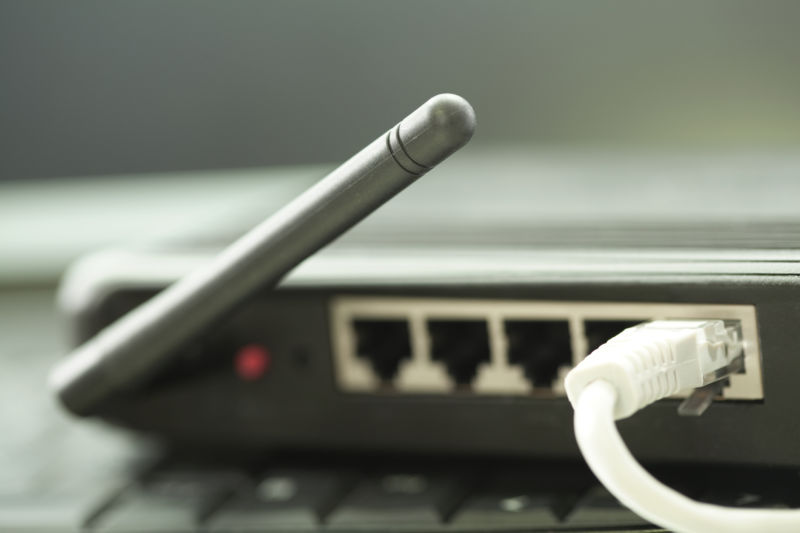
Broadband and TV providers will finally be required to stop charging “rental” fees for equipment that customers own themselves, thanks to a new US law that takes effect on Sunday.
The bogus fees were outlawed by the Television Viewer Protection Act (TVPA), which was approved by Congress and signed by President Trump in December 2019. The law was originally scheduled to take effect on June 20, but Congress gave the Federal Communications Commission leeway to delay enforcement by six months if the FCC “finds that good cause exists for such an additional extension.”
The FCC in April granted the six-month delay to ISPs, claiming that providers needed more time to comply because of the coronavirus pandemic. That decision delayed implementation of the new requirements until December 20, 2020.
Frontier must finally stop bogus charge
The change is good news for customers of Frontier Communications, which has insisted on charging $10 rental fees to customers who use their own routers. As we wrote in July 2019, Frontier claimed it charges the fee to cover higher support costs for customers who use their own equipment. But Frontier said at the same time that it “cannot support or repair non-Frontier equipment,” contradicting its own justification for charging the fee.
Frontier took advantage of the six-month delay, telling Ars in June that it would “comply with the requirements when the law goes into effect” in December. Unlike Frontier, other major ISPs such as Comcast let customers avoid rental fees when they use their own routers.
The law’s implementation will “put an end to the unconscionable business practice of charging consumers a rental fee for cable modem routers even if consumers do not use them!” consumer-advocacy group Public Knowledge said in a blog post. “This common-sense correction will permit consumers to continue to use their own equipment, and not be forced to pay for something they neither asked for nor needed.”
When contacted by Ars today, Frontier said it is now “in compliance with the Television Viewer Protection Act. Customers that are charged for covered equipment may return equipment and will not have equipment charges. If a customer uses their own equipment, they may face compatibility issues with their service depending on the equipment, and Frontier may not be able to provide technical support.”
The new law, passed as part of a budget bill, creates a “consumer right to accurate equipment charges” that prohibits TV and broadband providers from charging for “covered equipment provided by the consumer.” Covered equipment is defined as “equipment (such as a router) employed on the premises of a person… to provide [TV service] or to provide fixed broadband Internet access service.” The companies may not charge rental or lease fees in cases when “the provider has not provided the equipment to the consumer; or the consumer has returned the equipment to the provider.”
New cable-TV transparency rules
The law also includes a right to transparency that requires TV providers to inform customers of the total monthly charges, including all company-imposed fees and a good-faith estimate of all government-imposed fees and taxes, before they enter into a contract. This notice must specify the amount of promotional discounts and when those discounts will expire. The law also gives customers a 24-hour period in which they can cancel new TV service without penalty.
The new rule won’t prevent TV providers from raising prices on existing customers, even when they’re under contract. For years, cable companies have been regularly increasing the “Broadcast TV” and “Regional Sports Network” fees that are excluded from advertised prices and requiring all customers to pay the higher rates regardless of their contract status.
But the new transparency requirement is a step in the right direction. “For years, consumers have been misled by pay-TV providers advertising service for one price and then charging another,” Public Knowledge Senior VP Harold Feld said in a press release today. “Until now, consumers have had zero recourse for dealing with these surprise fees other than ending service and paying an unfair termination fee for the privilege. Not anymore.”
Public Knowledge said the required 24-hour cancellation period will help prevent situations in which consumers sign up for TV service and then realize, after it’s too late to cancel without penalty, “that they’d be charged hundreds of dollars a year in unexpected fees.” Public Knowledge’s blog post also said the law’s implementation will help prospective Comcast customers, though not existing customers:
Importantly, this legislation will go into effect just in time to help consumers who are considering signing up for pay-TV service from Comcast. The company recently announced it would be raising its company-imposed fees like the Broadcast TV Fee and the Regional Sports Fee starting on January 1, 2021. These skyrocketing fees could cost Comcast customers an additional $78 a year. While the TVPA doesn’t do much to help existing pay-TV customers, who will now be forking over enough money for a month or two of car insurance despite not knowing they would be doing so when purchasing their service, it would help new customers avoid signing up for a service they can’t afford.
While the ban on charging rental fees for equipment that customers own applies to both TV and broadband service, the other transparency requirements affect only TV service. “Although the TVPA helps new customers avoid signing up for a budget-busting pay-TV service marketed at a significantly lower price, it doesn’t extend to Internet service,” Feld said. “We urge Congress to expand the requirements to Internet service providers so no consumer gets surprised by—and locked into paying—outrageous telecommunication fees.”
https://arstechnica.com/?p=1730785

